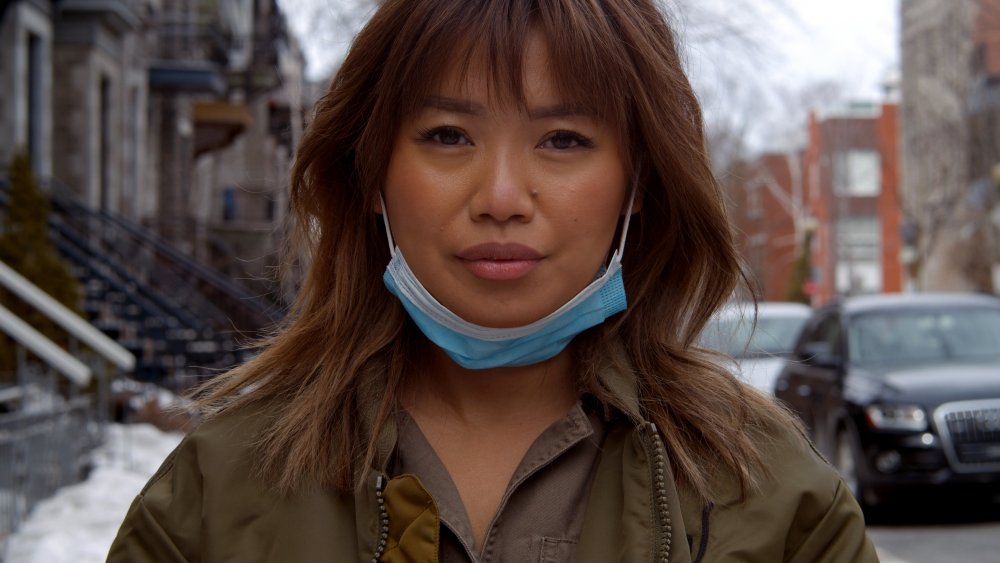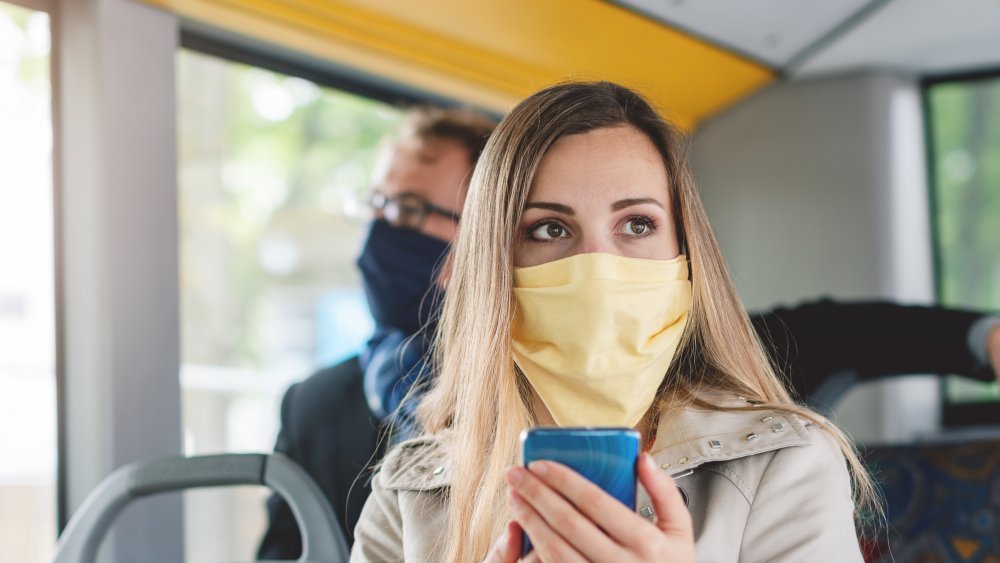The Face Mask Mistake You're Probably Making Right Now
There are a scant number of reasons why you would know how to put a face mask on properly — one would be if you work in the healthcare industry. The other would be if you lived or visited somewhere like Japan, Hong Kong, South Korea, or Taiwan and then picked up a flu or a bad cold, where the practice of wearing face masks has been common for some time now (via Quartz). So, we wouldn't be surprised if you're trying to find new, creative hacks which experts haven't yet thought of to make masks, well, a bit less stuffy and a lot more breathable.
No matter what hack you come up with, the simple way to make sure that your mask is working the way it is intended, is by having it covering the most vulnerable places on your face; and those are your nose and mouth. "These are the areas where virus can be shed from. Masks should comfortably fit toward the bridge of the nose," David M. Aronoff, director of Vanderbilt University Medical Center's Division of Infectious Diseases, explained to Today. If you aren't covering your nose and mouth, this is a big mistake, and won't protect you, or others.
A face mask hack that leaves your nose and mouth exposed defeats the purpose
Given that a mask's primary task is to keep your nose and mouth covered, you can safely consider any hack that might keep a mask from doing its job to be a mistake (yes, that includes cutting breathing holes into a face mask, because, yes, some have done this according to Forbes). And while it must be snug, autoimmune disease specialist Brooke Goldner says, "The mask does not need to be uncomfortably tight, but you do want to make sure there are no gaps between your face and the mask." Again, this means that wearing your mask loosely, leaving gaps on the sides; as well as using a mask which only covers the tip of your nose, aren't going to be good at either protecting you from the coronavirus or keeping it from spreading.
If you still have questions about how to properly wear a face mask and have it be effective, visit the World Health Organization's website, which offers a full page of tips. Meanwhile, if you have an illness that makes it difficult for you to breathe like asthma or COPD, it will be more responsible for you to stay home instead according to doctors.

